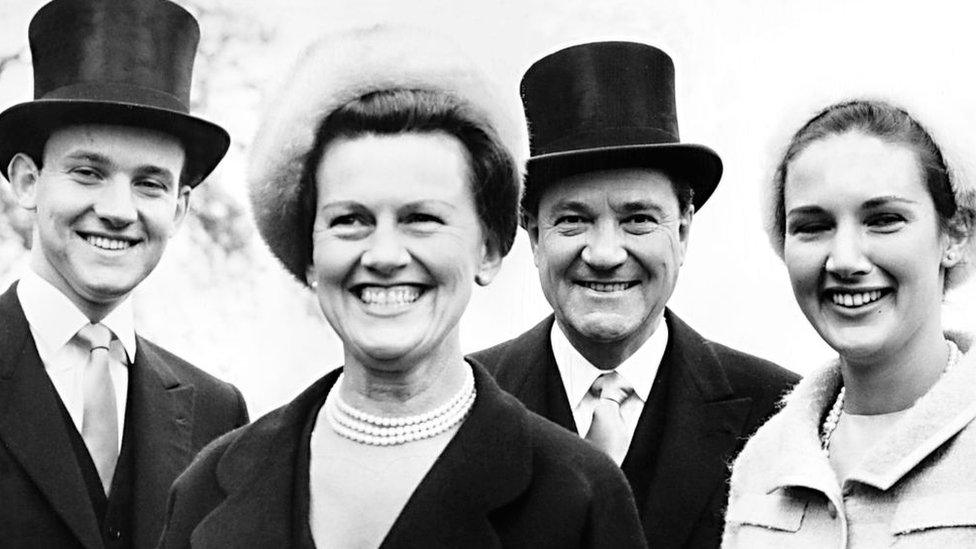'Meeting my mother's murderer was unsettling'
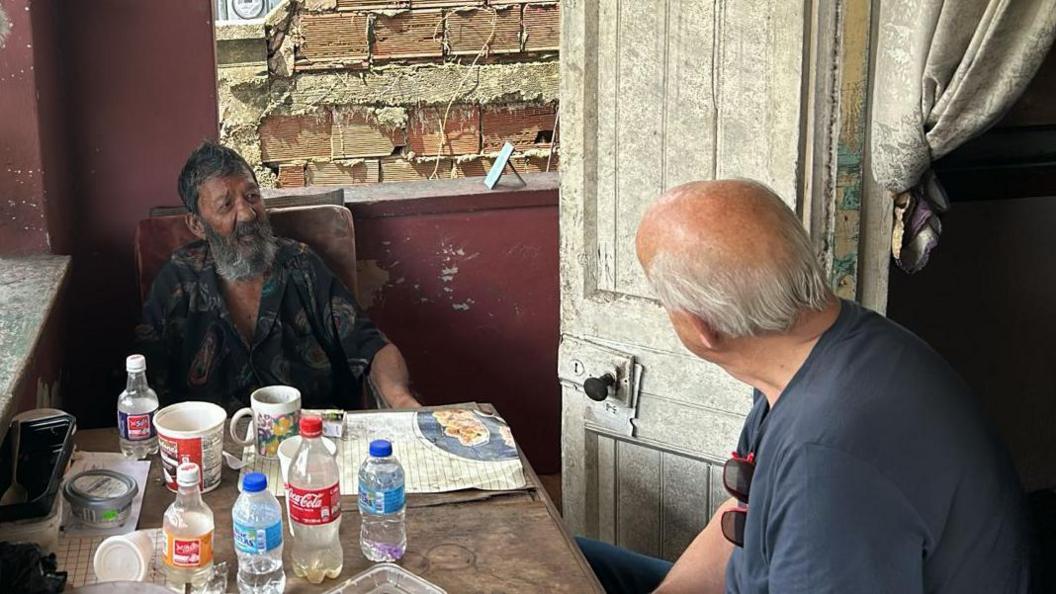
Ian McKay visited Nizamodeen Hosein in Trinidad to "look him in the eye and see if he is telling the truth" about his mother Muriel
- Published
A son who answered hostage calls after his mother was kidnapped 55 years ago has finally come face-to-face with the man who abducted her.
Ian McKay said it had been "very confronting and unsettling" to meet Nizamodeen Hosein, who was jailed in 1970 for killing Muriel McKay at a farm in Hertfordshire.
He said he "still believes" Hosein was telling the truth about where his mother's body was buried, despite a fruitless police search in July based on Hosein's testimony.
The Metropolitan Police said it had concerns about the reliability of Hosein's memory and it was "not proportionate to carry out any further searches".
"I honestly believe we will find her, we won't stop until we do," Mr McKay told the BBC.
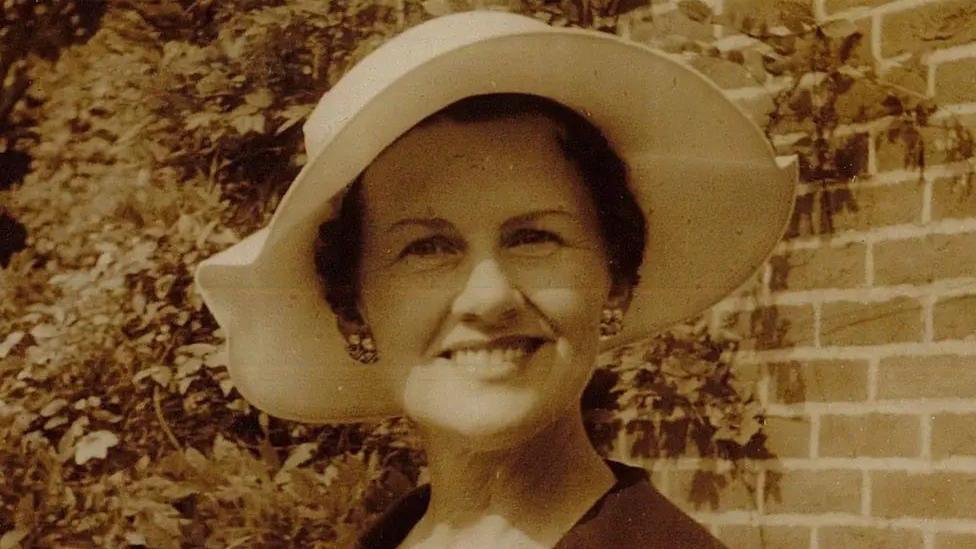
Muriel McKay's husband Alick was newspaper deputy to Rupert Murdoch
Muriel McKay disappeared in December 1969 after being mistaken for the then-wife of media mogul Rupert Murdoch.
The day she went missing, phone calls were made to her home from a person calling themselves "M3", demanding £1m in ransom money.
Ian McKay said he himself had answered many subsequent calls from M3 - who threatened to kill his mother unless the money was provided - as the family desperately tried to find out who had taken her and where she was.
"We had no idea of whether we would manage to bring these people down," he said.
"I knew if we lost them, we'd spend the rest of our lives seeing people in the street and wondering if it was our mother."
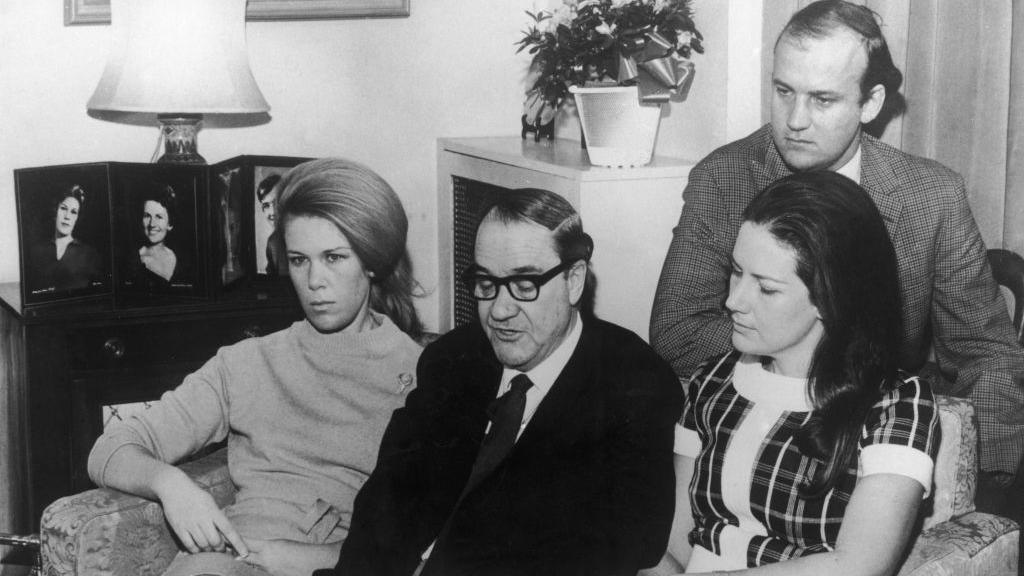
Ian McKay, back, with his father and sisters as they made a television appeal for help to find Muriel McKay. Ian answered many of the hostage calls made by Nizam Hosein in 1969
Police tracked down the kidnappers to Rooks Farm in Stocking Pelham, East Hertfordshire, but could not find Mrs McKay's body.
Arthur and Nizamodeen Hosein were convicted, but while Arthur died in prison, Nizamodeen was deported back to Trinidad after serving his sentence.
Decades later, he told Mrs McKay's daughter Dianne that her mother had been buried under a heap of manure just outside the farmhouse.
The Metropolitan Police searched the farm – now called Stocking Farm – in 2022 and again in July.
But Hosein was not invited to the dig, which the family believed was a mistake.
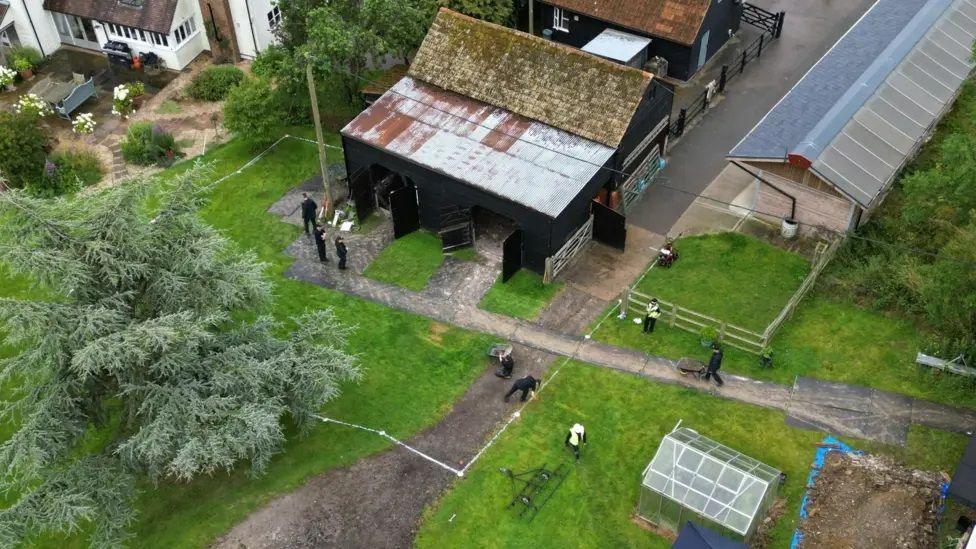
Met Police searched Stocking Farm in 2022 and 2024 but could not find Muriel's remains
Following the eight-day search in the summer, Det Supt Katherine Goodwin said: "Muriel is not in the location he pinpointed.
"Bringing a convicted murderer to the UK has a high threshold and only happens in exceptional circumstances."
A spokesperson for the Metropolitan Police added: "While we are aware the family have been further speaking to Hosein, it remains the case that we have concerns about the validity and reliability of his information and memory, and it is not proportionate to carry out any further searches.
"Our investigation has concluded. Our thoughts remain with Muriel's family."
To assure himself of Hosein's testimony, Mr McKay flew to Trinidad in November to meet the man who had taunted him on the phone, "to look him in the eye and see if he's telling us the truth".
He has never trusted Hosein's claim that his mother died of a heart attack rather than being killed.
But having met at Hosein's house, Mr McKay said he did "still believe" the account of where his mother was buried.
"He's constantly restated [where she is]. He hasn't varied from his account," he said.
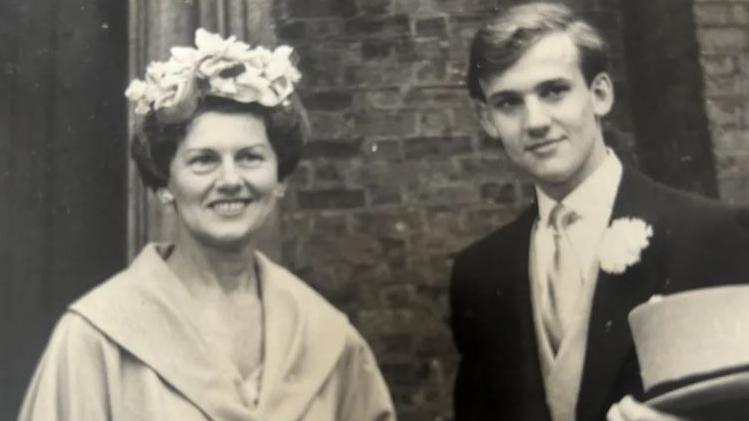
Ian McKay, pictured with Muriel McKay, wants to know what happened to his mother
Mr McKay acknowledged Hosein did not like talking about the case.
"He has problems facing the facts of whatever happened in that period. He doesn't like to be reminded," he said.
"I had a sheaf of photos of my mother with her dog, pictures of the family and house – he got very troubled and said, 'I don't want to talk any more'."
Mr McKay thought Hosein wanted "forgiveness" by helping to find his mother's remains.
"He acknowledges he doesn't have that long and he'd like to live his last few days in some form of closure," Mr McKay said.
"It will never be closure for me until we can actually discover where she was buried and get some information from forensic people about what her final hours were like."
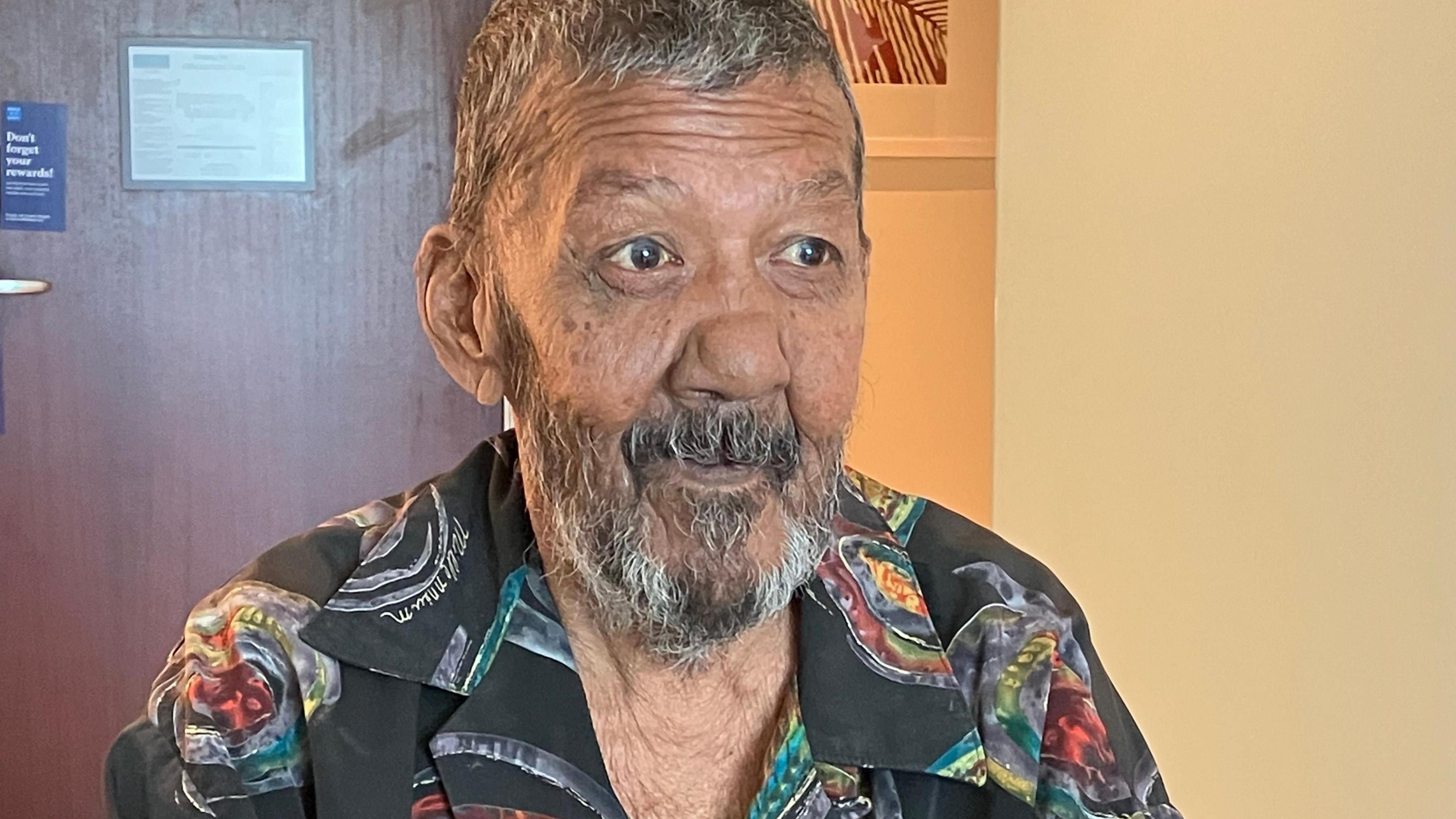
Nizamodeen Hosein told the family of Murial McKay the alleged location he buried her body
Get in touch
Do you have a story suggestion for Beds, Herts & Bucks?
Follow Beds, Herts and Bucks news on BBC Sounds, Facebook, external, Instagram, external and X, external.
Related topics
- Published22 July 2024
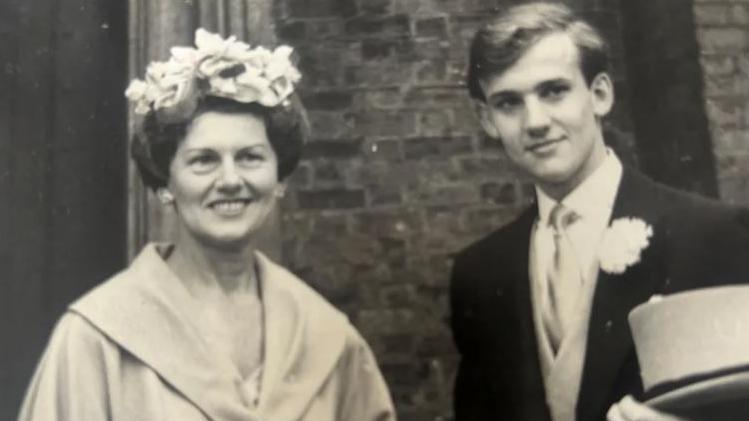
- Published6 October 2024
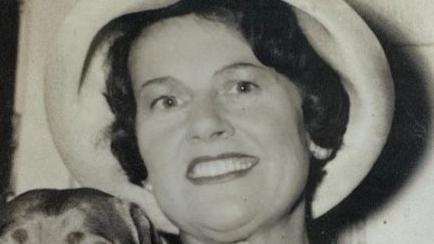
- Published18 July 2024
